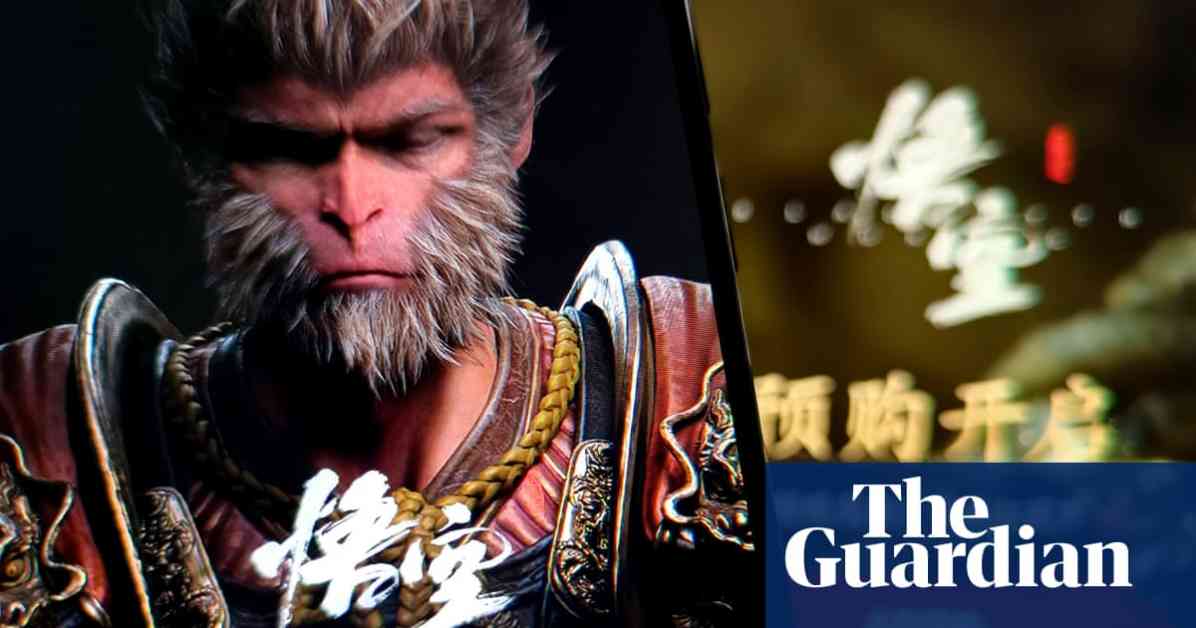Black Myth: Wukong Game Sparks Debate Over ‘Feminist Propaganda’ Comment
The highly anticipated Chinese game Black Myth: Wukong has taken the gaming world by storm, selling over 10 million copies worldwide within just three days of its release. Developed by Game Science, the game is China’s first “triple A” rated game, boasting a high budget and blockbuster status. Based on the iconic 16th-century Chinese novel Journey to the West, Black Myth: Wukong has garnered praise for its stunning visuals, engaging gameplay, and immersive storyline.
Controversy surrounding the game arose when gaming influencers who were given early access to Black Myth: Wukong were instructed not to mention certain topics while discussing the game publicly. These topics included news and politics, Covid-19, and what was referred to as “feminist propaganda.” The directive, which was quickly shared on social media, sparked a heated debate among fans and players alike.
The list of topics to avoid while live-streaming the game also included instructions to refrain from insulting other influencers or players, using offensive language or humor, discussing politics, violence, nudity, fetishization, and other content that could instigate negative discourse. Additionally, influencers were told not to use trigger words such as ‘quarantine’ or ‘isolation’ or ‘Covid-19’ and to steer clear of content related to China’s game industry policies, opinions, news, etc.
While it wasn’t clear what was meant by “feminist propaganda” in the instructions, reports surfaced linking the directive to allegations of sexist and inappropriate behavior by Game Science employees, particularly in reports from game website IGN. Game Science and Hero Games, a co-publisher of the game, have been contacted for comment regarding the controversy.
Many fans online expressed their concerns over the directive to gaming influencers, with some connecting it to the reports of sexist behavior within the company. On popular gaming YouTube channels, some celebrated the directive as a pushback against what they perceived as “wokeness” in gaming, citing reviews that criticized the game for a lack of diversity.
Rolling Stone reported that the directives were not sent to traditional publications and reviewers and were not accompanied by non-disclosure agreements, making them legally unenforceable. In response to the directives, some users took a satirical approach, with one user titling his livestream “Covid-19 Isolation Taiwan (Is A Real Country) Feminism Propaganda” and commenters filling the chatbox with politically sensitive terms, including references to the 1989 Tiananmen Square massacre.
The issuing of such directives is not uncommon in the gaming industry, with some streamers noting that requests to avoid discussing politics and current events like Covid-19 are standard in contracts for sponsored streams. However, the inclusion of “feminist” topics in the list was seen as unusual and perplexing by many. Twitch streamer Ben Cassel commented, “I do many sponsored streams, and I’ve never seen anything about ‘feminist’ anything in any of them. That is new. And definitely very strange.”
Despite the controversy surrounding the directives, Black Myth: Wukong has seen immense success globally, with over 3 million concurrent players across all platforms and 2 million concurrent players on PC gaming platform Steam in its first week. The game was the most viewed on Chinese platforms on its first day of release, and in Singapore, some workers were reportedly given time off to play the game.
Chinese authorities and media have praised Black Myth: Wukong for its success, with headlines touting its ability to “build pride, subdue prejudice,” and “spark interest in Chinese culture.” However, recent reports from Chinese state media have accused Western media outlets of using the game to attack China, claiming that the controversy surrounding the game is part of a larger effort to politicize Chinese achievements.
In conclusion, the controversy surrounding Black Myth: Wukong and the directives issued to gaming influencers have sparked a debate within the gaming community. While the game has enjoyed immense success globally, the restrictions placed on discussing certain topics have raised questions about censorship and freedom of expression in the gaming industry. As the debate continues, it remains to be seen how the controversy will impact the future of Black Myth: Wukong and the gaming industry as a whole.



























